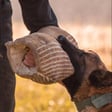Intro
Introduction to David Stein and His Background
00:00:21
The Jobs Podcast
Hey folks, thanks for joining me on the jobs podcast. Today we have David Stein with us. David owns a company, Steinwoodworking .com and he makes really awesome heirloom furniture from his family farm in the great state of Illinois. So welcome David.
00:00:38
Dave
Hey, thank you very much, Tim. I appreciate the offer to be on your show.
00:00:42
The Jobs Podcast
Yeah, thanks for coming. Let's go ahead and start with a little bit of backstory about your upbringing and how you got into the whole woodworking thing, your early influences, and we'll just kind of go from there.
00:00:54
Dave
Okay, well, I mean, it's pretty simple, really. I grew up on a dairy farm in west central Illinois here, a little town called Dow, Illinois. German background on both sides of my family and so,
00:01:07
Dave
My family really took it seriously to sort of kind of do everything there on the farm. We grew all of our own food. We cut down trees to build furniture and houses and, you know, just kind of did everything. So I grew up working with my hands and just really kind of took it from there. Now I did say it was a dairy farm when I was growing up and I don't know if you've ever milked cows, Tim, but it is a nightmare way to earn a living. It's twice a day, every day until you die.
00:01:36
The Jobs Podcast
Yeah, hard work. No vacations from a dairy farm.
00:01:39
Dave
That's exactly right. And so when I got the opportunity to do something different, I always would, uh, whether it was playing football in school or being on the debate team or, you know, going out in the woods and cut trees instead of, uh, milk and cows, buddy, I was right there. So that's kind of how I
Foundations in Furniture Design and Early Influences
00:01:56
Dave
got started. you know, at very early age, but then later on when my grandfather retired from the family farm,
00:02:04
Dave
he started going around to auctions and collecting antiques, refurbishing them and then selling them at local antique stores. So I was his oldest grandchild, so I became the driver and the muscle and we would just run around together and get all this old cool stuff and then I would help him rebuild it too.
00:02:23
Dave
So I kind of backed into a furniture know design education by just rebuilding and refurbishing all these old pieces of
00:02:33
Dave
So that's the short story, I guess, on how I kind of got my start.
00:02:39
The Jobs Podcast
Refurbishing is one thing, but then when I look at your website, you're creating stuff from the ground up. Did you just slowly develop the skill set with the influence from your grandfather and probably your own tinkering as your projects got bigger and bigger? Or did you have Woodshop in school that maybe had an influence on that?
00:02:59
Dave
Yeah. Well, I think that's a great point. Back when I was in school, you know, I i didn't graduate high school. I graduated high school in 1989. And so back then, you know, we still had woodshop.
00:03:09
Dave
And I remember some of the first woodworking classes I took were in junior high.
00:03:15
Dave
And we did a rotation back in the day there where it was like home ec for what was it a quarter and then woodshop for a quarter metal shop for a quarter and then business classes for a quarter. So They took it seriously and and I think it was really sort of eye-opening for myself and a lot of other kids realizing, you know, there's a lot of other things out there to do besides, know, maybe just your standard run-of-the-mill kind of desk jobs or or or factory jobs or whatever.
00:03:42
Dave
And so that was my first exposure to really, you know, taught woodworking, I would say. Everything before that and a lot of stuff after that has been you know, learn by doing type of stuff.
00:03:54
Dave
I was also in FFA and 4-H and took all the woodworking or wood-centric and forestry classes that I could through those two organizations.
00:04:04
Dave
So yeah, that's kind of how the education part of it got started. And then I ah feel like I ah probably just had a pretty good affinity for it too.
00:04:13
Dave
And so i i it wasn't really work to me to kind of go to the wood shop and tinker around. You know, through the course of a few years of doing that, I started building some things that were my own design and, and the way I got into like the live edge type of, uh, furniture that we do a lot of now back in the, I guess this would have been in the mid eighties or late eighties, uh, was we would take things to local sawmills, and even do a little bit of sawmilling ourselves
Development of Unique Woodworking Style
00:04:46
Dave
I really responded to those first slabs that came off of the log where you get that live edge on both sides. And you're kind of the first person to ever see what's in there. And then usually you lay those slabs off to the side and you come along and you rip those live edges back off to make regular lumber. And I always just really responded to those natural forms. And so that later in my career, you that's what I gravitated towards.
00:05:10
The Jobs Podcast
That's one question about live edge. Has that always been a thing and I just wasn't aware of it or did that kind of, did that just kind of come into its own here in the last, I don't know, 10, 15 years?
00:05:22
Dave
Yeah, well I think I think if you would look back historically and I'm not a historian I just you know what I know through reading and writing and talking to people and and you know magazines books that I've read but You know if you think about it live edge is like the sim simplest form of boards you're gonna get off of anything so even if you're cueing them out with an axe or something you're gonna end up with that live edge and
00:05:47
Dave
If you like it, and it works for your your process you might just stop you know and go that leave it like that, but if you need American studio furniture movement in the United States was probably starting to know in the 20s or 30s with guys like warden ashrick and then later on with George Nakashima and you know tage fred and Oh, who's the guy? Sam Maloof. You know, up probably from the 20s through the 50s and 60s, these guys were really pushing the envelope of what it really means to be sort of a one-man shop, artisanal furniture design kind of situation. And the celebration of the live edge, you know, as far back as Wharton-Eshrick in the 20s and 30s around the Philadelphia area, and then
00:06:59
The Jobs Podcast
Mm-hmm Yeah
00:07:13
Dave
You know how things are. You can take a piece of wood if you're a decent woodworker and you can twist it any shape you want. I mean, you can make baskets out of it. You can make paper out of it.
00:07:20
Dave
You can make big tables, polished pianos, whatever you want. But if you've got a cool piece of wood or any cool natural piece of anything, whether it's stone, whatever, and you just kind of let it be what it wants to be, I think that's somehow a little bit more interesting, if that makes any sense.
00:07:36
The Jobs Podcast
Nobody does it, you know, it does. Nobody does it better than nature, really.
00:07:41
The Jobs Podcast
I mean, yeah.
00:07:42
Dave
That's a better way. That's a more succinct way of putting it, but you the podcast has got to fill an hour, so we got to let me talk. ah no ah no Yeah, but that's, and so to answer your question, live edge design has been around a long time.
00:07:58
Dave
I think it really didn't gain a huge foothold until probably the 50s after World War II with the George Nakashima's influence and some other pioneers in that area.
00:08:10
Dave
And then, you know, honestly, when I started building furniture, I had never even heard of any of these furniture designers.
00:08:17
Dave
I just, like I said, kind of backed into it with repairs and refurbishment and then started building a few of my own pieces out of some of these live edge boards that I salvaged from the scrap pile at the sawmill and then just kind of moved on from there.
00:08:30
Dave
And then people who saw my work said, Hey, you really ought to check out this one or that one who's doing, you know, live edge work and, uh, and that, kind of led me to where I am today.
Career Shift from Law to Full-Time Woodworking
00:08:42
The Jobs Podcast
The I was looking at your bio on your website and you had a little bit of a foray into the legal field.
00:08:50
The Jobs Podcast
Was let's walk me through kind of what took you down that direction and then what brought you home.
00:08:56
Dave
Well, I think going back to what I said about milking cows, I really don't like it. um It turns out I'm one of these guys.
00:09:04
Dave
I'm pretty good at school. So like if you give me a test on something, chances are I'll pass it even though I don't even know what this subject matters about.
00:09:12
Dave
And so that's annoying to a lot of my family and friends, but that's just kind of like one of those things that I can do. And so my grandfather and my parents, they sort of realize that and. encouraged me to go to law school and figure out, uh, tax planning and and estate planning and stuff.
00:09:28
Dave
Cause the family farm where I grew up has been in the family for four generations and they wanted to keep that going.
00:09:32
The Jobs Podcast
Hmm. Hmm.
00:09:33
Dave
So, you know, I, I kind of took, took the bull by the horns on that and, uh, and just, I went to Penn state for college and I had big plans.
00:09:45
Dave
I was going to play football and I, I walked on and then I walked right back off. Cause those guys were men and I was just a young boy. So.
00:09:52
Dave
but then I ended up going to law school at George Washington in DC. And I just kind of took the idea that I would go to the best place I could get into. And, then I specialize in trust and estates, wills, probate and tax planning.
00:10:05
Dave
And I was always really interested in it because, you know, I kind of had a dog in the fight. You know, I, my, my farm was, you know, kind of at stake and it was, uh, something that I could do to kind of help.
00:10:17
Dave
help my family out so that's that's how I went to the law but then I ended up ended up after going to law school well I should even say after the whole time during law school and even during college you know I was always had a little bit of a wood shop like in a closet or back room or somebody else's house or something and was always just building stuff or fixing stuff and then In law school, I started building humidors for people through Georgetown tobacco.
00:10:48
Dave
And my gimmick was I was building. Humidors for people who smoke cigars out of Native American hardwoods that were sustainably harvest and you know everything else was.
00:11:02
Dave
Madrone or mahogany or you know teak or whatever from across the globe.
00:11:06
Dave
So that kind of made my little niche there.
00:11:09
Dave
and then kind of went on from there. Yeah.
00:11:13
The Jobs Podcast
So you've started this is kind of your hobby.
00:11:17
The Jobs Podcast
This is your I'm gonna relax unwind time from after dealing with law during your nine to five type deal.
00:11:24
The Jobs Podcast
And then you shifted gears at some point to go from humidors all the way back to Illinois to the family farm to then make a go of making, well, I call it heirloom furniture, I think that's an accurate term.
00:11:39
Dave
Well, that's, I think that's generous and that, but that is what I shoot for. For sure. Yeah.
00:11:42
The Jobs Podcast
Right. Well, I looked at your website extensively, and it blows my mind the size of some of those slabs.
00:11:50
The Jobs Podcast
It's just unbelievable, especially the walnut.
00:11:53
The Jobs Podcast
Where I'm at, it's mostly red and white oak and an occasional walnut or hickory, but the size of those trees is is pretty substantial.
00:12:01
Dave
Yeah, well, again, but going back to the beginning of it at the farm, you know, my family has always been really conscientious about stewarding the land and not just sort of going in and clear cutting and taking the money and running.
00:12:15
Dave
So, you know, we only cut trees that are dead or dying or they're encroaching on the farmland. And as a result, you've got great big trees out there because if there's nothing wrong with it, I don't cut it.
00:12:27
Dave
You know, if, if it's the top blows out of it or it's dying or something, sure, I'll cut it and we'll try to make something great out of it. But in the meantime, the forest is just getting, you know, older and, and bigger scale.
00:12:38
Dave
And, uh, you know, that's kind of how we've gotten to have these great big logs and huge slabs, you know, so we've been really fortunate with that.
00:12:49
The Jobs Podcast
Do you have any sort of a plant in place to where you're planting trees or do you just kind of let your, just let mother nature take it?
00:12:56
Dave
Yeah, yeah, it's a question I get asked all the time, and we do have just a natural approach to it. So rather than going out and planting walnut trees every year, because I realize right now walnuts the most valuable tree in the forest, you get a lot better timber in the long run.
00:13:16
Dave
And I mean, this is the long run, like 100 years long run, not long run, like next quarter long run.
00:13:23
Dave
You get a lot better materials, a lot better trees. If you just let the stuff grow where it wants to grow to a certain extent, as long as it's native and, you know, not invasive or whatever, then you do, if you go out and you just plant trees, maybe where they wouldn't normally grow. So, you know, a good example is, is walnut. They, the squirrels plant them, you know, and they pop up here and there and you'll get a little grove of them because maybe there was one that got planted and survived. And then the squirrels started planting.
00:13:51
Dave
the walnut trees around and then pretty soon you got a nice little grove. Well on the other side of that same little valley or hill or whatever they might have put a few in the ground but they didn't make it because the conditions weren't right. So you know maybe cherry trees grow good on that side or maybe it's maple or maybe it's you know ash or whatever the case may be. So again sort of going around the horn here to answer your question. We don't replant trees. What I really do is harvest super sensitively so I don't bang up or wreck the new saplings that are coming up when I'm logging out the trees that I am getting. And so that way nature could just kind of take its course and replenish the forest you in a way that best fits the ecosystem.
00:14:37
The Jobs Podcast
Have you had any incidents or time periods since you've been doing this? You've been doing it for what, 27 years I believe now?
00:14:45
Dave
Yeah, I think we formed the company in 97. So yeah, we're getting close to 30.
00:14:48
The Jobs Podcast
Okay. Right on.
00:14:51
The Jobs Podcast
Have you had any issues where you you hear about the different diseases that are just decimating certain types of trees?
00:14:59
The Jobs Podcast
Have you had any problems? And I'm sure you have to regularly check to see if you're Okay.
00:15:05
Dave
Yeah, well, you know, just being out in the forest, you know, during the year, you can kind of see different things. I think the worst thing that's happened during my time as a professional woodworker has been the emerald ash borer.
00:15:18
Dave
So our forest here on the farm and in this county was probably, I'm just going to shoot from the hip and say maybe 15% ash at one time.
00:15:29
Dave
And now there's just darn near zero.
00:15:33
Dave
We do still get some ash trees that pop up, but they get about the size of a baseball bat and then the borer gets in them and they
00:15:40
Dave
I don't think they're coming back either and it kind of reminds me of a lot of stuff I heard about. Oh, I guess it would have been in the teens or 20s when the chestnut blight went through this country and chestnut was maybe 25% of the forest and they just all went away within 10 or 15 years.
00:15:57
Dave
So that's kind of where we are with ash. Other things, I haven't noticed anything affecting the oaks or the red oaks, white oaks or or or walnuts or maples or cherries. But the one other problem that we have invasively is the autumn olive and bush honeysuckle and mold floor rows that has just really crowded the understory in the forest to the point where the small trees can't get started because they just, you know, they get crowded out by these invasives. So that's been a major, major problem. And it's probably,
00:16:36
Dave
It's not getting any better. Even though there are eradication programs, it's extremely labor intensive to get rid of that stuff. And then you drop your guard for a week, a year or two and it's right back.
00:16:47
Dave
So it's, that's a problem.
00:16:48
The Jobs Podcast
Is that something that is, is that typically those invasive species you mentioned? Are they typically controlled with controlled burn or is it a chemical application or is it just manual tearing them out of the ground?
00:17:00
Dave
All three, all three.
00:17:01
Dave
So every time I'm in the woods, I usually have a hatchet with me and maybe a little squirt bottle of, uh, of Roundup or Tordon or whatever they're recommending that year. So I can cut them and squirt them and make sure they don't come back.
00:17:14
Dave
when we're in the woods with the equipment, you know, you can pretty quickly put a choker around a, uh, Bush honeysuckle and pull the whole thing out and, and kill it that way.
00:17:25
Dave
But. That stuff is, I wish I knew what to make out of bush honeysuckle that was useful because that stuff grows. It's just like when you have your garden and you want asparagus and all you get is like foxtails thistles, you know, and they grow like mad and your asparagus takes five years to get going.
00:17:45
Dave
It's the same way in the forest. Unfortunately, the trees that I want to grow, you know, they're getting crowded out by the junk that I don't.
00:17:52
Dave
Yeah, there's guys around here that that burn and they're we're even I'm signed up for every program I can get signed up for for burning and spraying and everything else.
00:18:01
Dave
But you know, there's only so much time and money to go around for all that stuff. And the newest thing that people are doing is they're turning goats loose out in the woods because man, they will eat the heck out of that stuff and right down to the roots and kill it.
00:18:05
The Jobs Podcast
Sure. Oh sure.
00:18:13
Dave
But Again, you know, it just depends on how much labor and money you want to throw at all this stuff, but it is a real, it's a real problem. I'd say it's a bigger problem than, you know, the diseases that might be running through the trees, but, uh, yeah, it's, it's a tough one.
00:18:29
The Jobs Podcast
What is a typical day like for you? That may not be a question you can't answer because every day could be different. But as far as I mean, you wake up, you're walking out in your office, which is a great place in the woods to spend time looking at your crop and seeing you know, if there's something that you could drop in and turn into something.
00:18:50
The Jobs Podcast
What's what's your process like there?
Daily Operations and Business Management
00:18:53
Dave
Well, I wish every day did start in the forest, but unfortunately, uh, most days, you know, I, I mean, I'll, I'll walk you right through the regular day.
00:19:03
Dave
Cause I am pretty regimented. You know, I'm up, I'm up at five 50.
00:19:07
Dave
I'm on the treadmill for an hour. Just trying to keep the old body working. and Then into the shop, you know by seven or so seven seven thirty and then the guys come in at eight I've got two full-time employees and we have some other guys we hire temporarily when we need help at the sawmill or whatever Yeah, and then it's just basically working with my wife hand-in-hand to going over the day's schedule and what needs to get done that day and Then back out in the shop with the guys hand. I'm probably hands-on about six of the eight hours of a workday anymore and
00:19:40
Dave
You know, it used to be, I would be, I'd be hands on about 14 of every, of every six hour day, but, but taking a little bit, uh, of a less hands-on approach in the shop.
00:19:53
Dave
We've got a great lead craftsman, Eli Corona. He's been with us for 11 years. And geez, I'll tell you, he's a better woodworker than I am now. He's just amazing. And, and, uh, so, you know, I feel super comfortable.
00:20:06
Dave
Just handing off a lot of things to him and then I come in and help make a lot of the artistic decisions and the lumber choice decisions and things like that and also just dealing face-to-face with all the clients which which really is You know the value the best the best value for my time is when I'm talking to clients and making sure they're getting everything they they need But then you know in the afternoons then
00:20:30
Dave
We might take a little time in the woods or you do anything that needs done around the farm or the shop just to keep the physical plant going. you I maintain all my own machinery, even the cars and trucks and tractors and stuff. you I do all the maintenance and and and all the repairs and everything right here. And most of our machinery in the shop is, oh, I'd say it's probably pre-World War II, most of it.
00:20:56
Dave
Yeah, we have a saw stop and we have a couple other modern machines, but no CNC machinery, no CAD drawings, nothing like that. So it's pretty hands-on and old school. And you were saying earlier about some of these massive pieces we get to build and work on. And I've really made that my my I guess my main focus.
00:21:20
Dave
So all the machinery and stuff that we have in here in the shop is basically built around the idea that I want the biggest thing that's ever been made that does this job. So for example, we have a, most people would call it a jointer, but technically it's called a facer and it'll put a flat face on a board up to 42 inches wide.
00:21:41
The Jobs Podcast
Wow Yeah
00:21:41
Dave
And you know, that's something that was built in the sixties and come out of a flooring plant. They didn't make too many of them but then we have a 42 inch wide planer also and then a 52 inch wide belt sander and then we've got some smaller equipment like 24 inch joiners and 12 inch joiners and 24 inch planers 30 inch planer. But all that stuff is basically you know just trying to always find the biggest thing possible to do these jobs with with very large slabs and and tabletops and flat surfaces that we work with. Because that really is what this shop's all about. I usually start off with that when I'm describing somebody that, oh, you know, you know woodworker, what do you do? And we build big flat surfaces. So whether it's conference tables, dining tables, headboards, coffee tables, desks, things like that. So all the equipment in the shop is sort of geared towards that as well.
00:22:34
The Jobs Podcast
Some of your older equipment that you were just describing, if you have a part that goes bad, i i that's not an off the shelf or a Home Depot run.
00:22:41
The Jobs Podcast
That's probably a fabricator that makes a part for you.
00:22:45
Dave
Yeah, that's true. but I'll tell you what the genius of some of these engineers and designers that built this stuff back in the old days was that, uh, you know, they built all the parts that shouldn't wear out out of cast iron.
00:22:59
Dave
And unless you drop it or run into it, the forklift, it's really literally going to last forever.
00:23:05
Dave
But then all the wear parts are stuff that's sort of off the shelf available even today. So, you know, bearings and bushings and, you know, grease and even some shafts and things like that.
00:23:16
Dave
They, all that stuff is like standard sizing. So you can go to machinery parts dealer like McMaster car or something, and you can find just darn near everything you need for these things.
00:23:27
Dave
The, you know, the only downfall is if you, If you catastrophically heard a machine by, like I said, like you drop it off the trailer when you're bringing it home or something. Well, there's no going back from that.
00:23:39
Dave
So you've, you've messed it up, but used, used as they're supposed to be used and then maintained appropriately, man, there's no reason that some of these big planers and these big machines that we have wouldn't, I can't, I don't know how you'd wear them out.
00:23:54
Dave
You know, it's just wood versus cast iron cast iron usually wins.
00:24:00
The Jobs Podcast
I'm curious about what size bar you use on your chainsaw because I have I have some just a few acres and I remember when I thought I was hot stuff when I got my first steel chainsaw with a 20 inch bar.
00:24:12
The Jobs Podcast
I'm like, well, I'm basically a logger now, you know, but I would imagine that you are running some monster bars on those chainsaws.
00:24:14
Dave
Yeah. Well, we do. And I try to, it's really, I've been doing this so long and people are so generous and everything.
00:24:29
Dave
I do all this maintenance and everything on my own stuff. I'll come home sometime and there'll be a ah ah five gallon bucket of chainsaw parts sitting in front of my door.
00:24:38
Dave
People just don't want to throw it in the scrap and they know I love this old equipment. I probably have 35 chainsaws that are running right now and I probably have 50 that I need to get running.
00:24:49
Dave
but So I have a little bit of an embarrassment of riches, but what that does allow me to do is, you know, I've got some Steelo 90s and 088s that have, you know, five and six foot bars on them, but they only come out when I have something real particular to do. So if I really need to make a good straight, you know, perfect cut on a four foot across log, well, I just grabbed that thing and do it. And then I've got another Steelo 90 that has a five foot bar on it and it has a helper handle on the other end.
00:25:20
Dave
And then Eli and I, or else my son or another helper, we can cut real square with that. You know, like if we're cutting off a can't or a ah huge big squared off log, we can follow lines on it and cut real square with it. But most of the time when I've, you get your listeners will know my age here. My favorite saw is an Oh 56 Magnum two that I've probably Oh, I probably bought it in a box of junk at a sale or something and put it back together.
00:25:51
Dave
But that thing with a 36 inch bar is just almost acts like a part of your body when you get to using it. That's as long as I have, you know, it's the right length for me where I can swivel it at my hip and cut stuff off at the ground and I can hold it up at waist level and saw trees that way or do whatever.
00:26:09
Dave
But that's probably my favorite. So I think a 36 inch bar for bucking and for your basic cutting the wedges and starting the falling is is just about where you need to be around this area. If you were in some real big timber out west, you might want some bigger stuff. And if you were in smaller timber, you know, you don't need to haul around that big of a saw. But that's the one that I that I think is my favorite. Oh, 56 with the with a 36 inch bar.
00:26:34
The Jobs Podcast
Some of the modern ones are more computerized and whatnot. They're not just a simple carburetor operated chainsaw.
00:26:40
Dave
Yeah, and I got buddies who run that stuff and boy, They look awful fancy, but I don't know. It's kind of like these delivery vans and things that I have nowadays.
00:26:50
Dave
I used to be able to to pull stuff apart, and replace a head gasket or do whatever you needed to do, but those days are over, you know, and I don't know if I'm, what am I, 54?
00:27:01
Dave
Maybe I can get through the next 20 years of of and still swing a chainsaw and not have to buy a computer operated chainsaw, but we'll see, I guess.
00:27:08
The Jobs Podcast
Yeah, if you got to hook a computer up to a chainsaw, I think we're headed in the wrong direction.
00:27:11
Dave
Oh man. Yeah, you know, uh, every time I have a, an issue with the car that, that I can't, you know, figure out, like I used to be able to figure out it's, it's a bummer, but, uh, that's the way kind of things are going.
00:27:24
Dave
So it's a lot of it's better, but, uh, you know, not all of it.
Sustainable Wood Harvesting and Processing
00:27:28
The Jobs Podcast
Right, so the process of you cut down a tree, I'm assuming that you've got some pretty heavy duty equipment that you drag it over to your sawmill, then you're cutting it into slabs and you're processing it to see what you're working with once you get the bark cut off and and you're kind of seeing the grain and everything.
00:27:49
The Jobs Podcast
How do you separate the wood and I'm assuming you kiln it, gas kiln I assume,
00:27:56
Dave
Well, I'll just walk you through the process real
00:27:58
The Jobs Podcast
Yeah, yeah.
00:27:59
Dave
So first off, like being sensitive to the forest. I really only go out in the woods and cut trees when the ground's frozen and the leaves are off the trees.
00:28:08
Dave
So couple things with that, you know, all of my forest area that I have access to is bordered by farmland. So you're not going to be out there in the summertime tramping down you know, crops while you're, while you're cutting trees.
00:28:20
Dave
And it's also too hot.
00:28:21
Dave
And then when the leaves are on the trees, it it it's just, you know, a lot more mess and a lot more fuss to get stuff down. So we go out when there's usually a couple of weeks a year that it's about zero for four or five days.
00:28:33
Dave
And those are the days that I log. I, I'm not a big commercial logger or anything. So I get to kind of pick and choose and we're pretty nimble. So if it looks like in the forecast, You know, let's say Monday was going to be zero. We'll have the trucks loaded up and be ready to go out there at first light on a Monday. So cut down the trees, uh, cut the top off of the stem in the, uh, in the forest and leave it, uh, for firewood that we'll come back and get later. But yeah, skid skid the stems out. And you know, when you, when you're able to, uh,
00:29:08
Dave
kind of pick your time like I am with the frozen ground. I just have like a little 70 horse, two wheel drive tractor with a loader on the front. And then on the back of it, I've got a real fancy.
00:29:19
Dave
Well, I guess it was fancy when it was built in the eighties, but it's a, a farming logging winch. They still make them there from Finland, but it'll turn any little, you know, sub a hundred horsepower tractor into a very capable skitter.
00:29:33
Dave
That's what I use. You know, it's got a winch on it and then you can winch logs right up to the back and you pick up your three point hitch and that puts all the weight on your tires and then off you go. And like I said, if it's frozen, you know, it's just, they skid pretty easy, you know?
00:29:47
Dave
So then yeah, back to the gooseneck trailers and home to the sawmill. Then I try to get stuff sawed up real quick when I'm, when I'm working.
00:29:57
Dave
I don't like to leave it lay around. Bugs get under the bark and cause a lot of defects and problems. So we try to get them sawed up, you know, latest, you know, mid spring after doing all that skidding and moving in the winter. Then we stack everything up. I've got, I guess at this point, maybe eight or nine.
00:30:16
Dave
They're old hay frames or hay wagons, you know a four-wheel wagon with just a ah ah frame on it Not a floor and we stack lumber on those and then between each layer of the lumber or the slabs we put stickers and those stickers separate the boards from each other by about an inch and a half and they allow the air to flow through the stack and we take those wagons and we back them in an open-sided shed of which we have a couple and And then for anywhere from a year to three years, it just sits in there and the wind blows through and we keep the rain and the sun off of it.
00:30:53
Dave
And you'll get your timber down to about 13% moisture content, which is about as low as you can get it in the Midwest with our humidity and everything.
00:31:03
Dave
And then we've got a couple dry kilns. And so I've got those built so we can back those wagons right into the dry kiln. And they run with electricity and then they also, you know, there's fans that blow the air through the stacks and then there's a dehumidifier that runs.
00:31:19
Dave
And then they're heated by a wood burning furnace that I have out in the middle of the yard that has underground water pipes that run into the house and into the shop and then also into the kiln to heat the kiln.
00:31:32
Dave
So you may have seen these out in the country. It's a hardy wood burning furnace, but a lot of people around here have them.
00:31:35
The Jobs Podcast
Yep. Yeah.
00:31:39
Dave
So, you know, that's that's how it goes and so for big slabs think of your biggest ones Let's say you've got some 20 foot by 4 foot wide 3 inch thick walnut slabs, which we have from time to time That's about three years in the drying shed and then anywhere from a month to three months in the kiln Just low and slow and not trying to introduce stresses and problems and things like that if you get in a hurry and any of this stuff you're just asking for trouble so Low and slow is the name of the game on all that kind of stuff And so that's the basic process and then once they come out of the kiln and we get them down to you know between seven and nine percent moisture content we run them through a Sterilization cycle at the end of that kiln cycle as well taking everything up to 135 degrees Fahrenheit for a week to make sure if there's any bug larva or anything like that in there that it kills it or any fungus from spaults or whatever and Then it comes out
00:32:36
Dave
And then we take, when we unload the kiln, we photograph an inventory every slab that we pull out of there. So, you know, we put a code number on each board and then we chalk the width and the length and the thickness and any defects we note on it.
00:32:53
Dave
And then that all goes in a database on the computer. So when somebody calls up and they're looking for a particular thing, we just go to that area of the database and give them some choices. That's basically it.
00:33:03
The Jobs Podcast
See, when you go out just to jump back to the very beginning, and that was an excellent explanation, but when you go out there to look for your crop, are you typically going out to just see what you got?
00:33:16
The Jobs Podcast
Or are you going out saying, I want to get 50% walnut, 25% cherry, oak? Or is it just kind of whatever you've got is what we're going to process and move on from there?
00:33:28
Dave
It is, it is Tim. It's just whatever is ready to be harvested.
00:33:32
Dave
So if, uh, well, I think a good example, maybe it's been five years ago.
00:33:36
Dave
Now we had a little microburst or tornado or something go, go through a little grove of walnut trees, uh, and one of our properties. And I mean, it just tore the heck out of stuff. And probably 12 or 13 walnut trees right in that little grove had the tops just completely sheared off of them.
00:33:53
Dave
Well, I knew where I was going to go logging, you know, the first time we had that zero degree day, because those things were, you know, they weren't coming back from that. So, you know, with 14 walnut trees in a day and get those out of there.
00:34:06
Dave
And then other times, like when the ash borer first went through here, you saw the ash trees dying. Well, that winter boy, we saw it a lot of ash. And then we did for the subsequent five years, you know, as, as the borer went through and killed everything.
00:34:21
Dave
And it's the same way with a white oak or a maple or anything else. If it's damaged or if it's dying, we'll go ahead and take it. And so I walk through the timber whenever I can. So at least once a month, but I try to do it once a week. And I'll go through all these different areas and then just sort of make a mental note. And I got a little notebook I always carry with me so I don't forget where something is. and When we get that cold snap, just try to get out there and get the stuff that needs to be gotten.
00:34:51
Dave
And what's funny, you there's probably, I don't know, there's somewhere between 400 and 500 acres of timber on this family farm I grew up on. And hell, there's trees out there that live their whole life and die and I've never even seen them.
00:35:05
Dave
And then there's other ones that I've had my eye on since I was a kid that'll probably outlive me. So, just kind of keeping your eyes open and surveying when you're out there.
00:35:14
Dave
and then know getting getting whatever is available when when it's available and not harvesting just because you need some certain species or something.
00:35:24
The Jobs Podcast
Yeah, it doesn't sound like you forced the issue. You kind of let it come to you.
00:35:27
Dave
Again, man, you're very succinct, whereas I'm very long-winded. That's a good way of putting it.
00:35:32
The Jobs Podcast
No, it makes for a great great interview. I appreciate your time.
00:35:34
Dave
Oh, of course, yeah.
00:35:37
The Jobs Podcast
When a customer comes to you, you talked about taking all the pictures that you had for the different slabs.
00:35:44
The Jobs Podcast
And a customer comes to you and says, we are looking at making a dining room table for our family and my parents, and we want to make it an air loop time thing.
Client Interaction and Customization Process
00:35:52
The Jobs Podcast
Do you have it to where, okay, we have these species, depending on the size, these are the slabs that we have that fit what you're looking to do.
00:36:00
The Jobs Podcast
And then you send them a few pictures and they kind of, yeah, and then they zero in and then you discuss the fine tuning of everything.
00:36:01
Dave
Yeah, some options, yeah.
00:36:09
Dave
Yeah, that's exactly right. And it's taken years to develop like our sales technique, if that's the word for it.
00:36:14
Dave
But basically, that's right. So, you know, a family or or or somebody will call, sometimes designer, architect, whatever it is, and they'll say, hey, We're looking for, like you said, a dining table. OK, so what size are you thinking? How many people do you want to seat? How big is your room? We get that sort of zeroed in on. And then what kind of species do you like? Well, people don't know what the species are normally unless they have been doing interior design or something for a long time. So we do a lot of education of clients. And what is cherry? What is walnut? What is oak? And what does that mean? And what does it look like?
00:36:52
Dave
Probably in the 70s and 80s when a lot of us grew up, you know, oak or cherry or golden oak or walnut were stains.
00:37:00
Dave
They weren't the real wood.
00:37:01
Dave
So there's a lot of education component that goes into it.
00:37:05
Dave
And then also, you know, what is real solid wood furniture and live edge furniture versus veneered or, you know, custom or I shouldn't say custom, but mass manufactured stuff. So tons and tons and tons of conversations with people.
00:37:19
Dave
If we can have them out to the shop and the showroom, that's always super helpful to just to get people really immersed in the process. But we do a lot of it, you know, via the Internet with photographs and videos as well.
00:37:31
Dave
FaceTime has been great for stuff like that. But yeah, so that's the second step is get them zeroed in on a species. So now we've got size and species and let's say it's a dining table again. Then we have to talk about what sort of a base do you want to put under it? Do you like the classic trestle? Do you like four legs? You know, do you like to mix some metal in there with your dining table? Maybe have steel legs or bronze or something of that nature. And then we talk about the finish and you know, do you want the hand-robed oil finish or you prefer a lacquer or
00:38:03
Dave
you know, what are you thinking about with that? And again, there's a lot of education component that comes through that with clients too in sending samples back and forth and things of that nature. But once we get it geared or narrowed down to size and species, that's when we can probably pull. Normally I try to limit it to the five best slabs that I think the customer might be interested in because you can over Sort of stimulate somebody you send them 10 choices and man, it's hard to make a choice So I usually send five and then I say hey if you want to come to the shop I'll pull your top three or top two and and then you we can make a choice So that's that's kind of how that process works.
00:38:31
The Jobs Podcast
Yeah. Right.
00:38:44
Dave
And then we're usually operating about 14 weeks lead time. So if you would call today You could expect delivery in about 14 weeks if we get all our all our eyes dotted and T's crossed, you know, and make sure we're on the right path.
00:38:59
The Jobs Podcast
The delivery aspect you just mentioned, you're delivering a substantial piece of equipment. So this is obviously not UPS or FedEx. This would be a freight ah company, I assume.
00:39:09
Dave
Yeah. Well, I'll tell you what,
00:39:12
Dave
You know, 25 years ago, whenever we were really trying to build the company, I delivered almost everything personally. And it was a little bit crazy when I look back on it.
00:39:23
Dave
You know, we went around the country and did furniture shows. So I'd load up the whole family. We'd be gone all summer. We'd take a truck and trailer and camp and just do furniture shows all through the West and the East coast and everywhere.
00:39:32
The Jobs Podcast
Oh, that's cool.
00:39:34
Dave
It was pretty cool. Yeah.
00:39:36
The Jobs Podcast
Great memory.
00:39:36
Dave
My kids hated it. Yeah. My kids hated it at the time, but now they're like, Oh yeah, we've been to Bryce Canyon. Oh yeah.
00:39:41
The Jobs Podcast
Oh, yeah.
00:39:41
Dave
We've been to Jackson hole.
00:39:43
Dave
So, but then, so I would go all summer and do these trips and then, you know, build stuff all fall. And then all winter I deliver, I'd just be in the van, just delivering furniture.
00:39:53
Dave
So, you know, I've been multiple times from, you know, the very furthest tip of Montauk out in Long Island, the whole way to LA and, you know, in a week or two.
00:40:02
The Jobs Podcast
My goodness.
00:40:03
Dave
So, but you know, when we were starting the business, it it just made sense for me, I'm not ah afraid to drive and and and put in the work.
00:40:11
Dave
And then also it was such a great opportunity to have another point of contact with your clients. And, uh, you know, reassure them that they made the right choice, make sure everything goes right with the delivery. And I bet seven out of 10 times you'd get a second order from them or one of their friends that came over to watch what was going on when they had their big piece installed. So it really worked out great to have that sort of high touch marketing. That just was a part of the delivery situation, but I will say now, uh,
00:40:45
Dave
things have progressed a little bit in the freight space in this country. I did even during that time, crate and ship stuff, but boy, it was always just kind of holding your breath and hoping everything turned out okay.
00:40:58
Dave
Cause the freight companies were not super careful a lot of times.
00:41:02
Dave
if you would hire a moving company, the price would just be astronomical. So now they have a, I've been using a lot the last probably four years, uh, uh,
00:41:13
Dave
application called u-ship and it's actually guys like they have sprinter vans or whatever and there may be retired or they might do this full time but they just get on there and that's it's basically think of it as like an uber driver for your furniture or for whatever you're trying to deliver and yeah and we've had you know knock on wood we've had real good luck we just had a couple pieces delivered to los angeles and you know no problems at all everybody was real happy and so we've been using that a lot more here lately too
00:41:28
The Jobs Podcast
I've heard about that. Yeah.
00:41:43
Dave
Because if somebody buys a $40,000 conference table, I'm showing up with it. That's happening. But if you buy a $500 little side table, it's really not.
00:41:53
Dave
It doesn't make any sense for me to put that in the van and drive it to LA. So yeah.
00:41:58
The Jobs Podcast
One thing
Family Support and Work-Life Balance
00:41:59
The Jobs Podcast
One thing that I notice in these interviews that I do is what you were talking about a minute ago where you were driving all over the country and you paying your dues, you were grinding it out, you were getting your name out there, shaking hands and kissing babies like the politicians do and stuff like that.
00:42:15
The Jobs Podcast
That that is a common theme that I hear from folks that are either entrepreneurs or they are so passionate about their job, that it's not work when they're when they're doing it.
00:42:28
The Jobs Podcast
And that's something I think a lot of folks can learn from if you're listening to this, because my whole theme is about people's careers and how they can learn from folks like you.
00:42:37
The Jobs Podcast
So grinding it out.
00:42:38
The Jobs Podcast
And and that's not a bad word. Sometimes they think it's a punishment, or it's a negative. but that's sometimes what you gotta do to make it work.
00:42:45
Dave
Yeah. Well, it's really true. Like, so, expanding on what you just said, I think a lot of people, and I don't want to put myself over, but they'll say, man, I'm really jealous of your lifestyle. You know, you kind of do what you want. You get to do these cool things that you build. And, uh, you know, if there's a project comes along that you're not interested in, you say no. And,
00:43:10
Dave
You know, you've gotten to go all these cool places and do all these cool things. And that's all true. That's all true. But it's still a job and it's still work.
00:43:20
Dave
And I don't know how many things that I've missed that my kids were doing that I had to miss out on because I was working or family obligations that just had to take a back seat because when you're trying to build a business, you know, your your business has to come first.
00:43:37
Dave
You know, there's always that thing. my I think one thing that gets lost in a lot of these conversations is, man, if you don't have a heck of a partner in a wife or a girlfriend or a, you know, whatever your partnership relation might be with your, in your personal life, you're in big trouble, you know, because if your wife, in my case, if my wife was not super supportive, this would have never happened.
00:44:00
Dave
So that's a whole nother thing, you know, and people discount really the sacrifices that
00:44:14
The Jobs Podcast
earned You earned it. You absolutely earned it.
00:44:20
Dave
We've been super fortunate. I take a lot of this timber that I use, it's big and it's cool. But it's stuff that would have been thrown away 30 years ago and just left a rot in the ditch and I take you know the world's biggest plants and try to make something cool out of them and have been able to make a Really cool living and a really good living and support my family doing this solely for the last 30 years You know and it's I'm proud of that, but that's it's it's it was not a it was not a cakewalk.
00:44:52
Dave
I Mean every day. It's still not a cakewalk. It's real work. It's real work
00:44:56
The Jobs Podcast
What, well, and what you said just a second ago, 30 years, it's not, you don't walk in and then have, you don't reap all the rewards from the beginning.
00:45:00
Dave
Yeah. Yeah. That's true.
00:45:04
The Jobs Podcast
That's towards the end.
Marketing and Hiring Practices
00:45:06
The Jobs Podcast
That's yeah.
00:45:07
Dave
You're, you're preaching the choir there. This, this whole Instagram generation and I'm part of it, man.
00:45:12
Dave
I like, I was one of the probably first thousand people on Instagram and it's been an amazing advertising tool for my business.
00:45:21
Dave
I mean, I went from zero followers on on on Instagram to 45,000 in like six weeks when the Instagram first came around, whatever year that was.
00:45:26
The Jobs Podcast
Wow. We need to talk after this interview.
00:45:30
The Jobs Podcast
I need some advice.
00:45:32
Dave
Well, I'll tell you what, back then it was the Wild West and they choked down the algorithm a few years ago and you, I don't, I don't care who you are.
00:45:40
Dave
If you're not going to pay the price that they want for ads and stuff, they're not going to distribute your channel.
00:45:45
Dave
So that's just, that's just the way that went.
00:45:47
Dave
But, I guess my point was I get maybe one call a week from somebody who's seen me on Instagram or been following and maybe they were an attorney to or an engineer or whatever.
00:45:58
Dave
The latest one was a surveyor. And they want to come and talk and bend my ear and talk about doing what I do for a living. And I tell them all the same thing. I'm like, all you have to do is just quit your job and don't do anything else, but you better make sure your wife is on board because it's going to be a bad time otherwise.
00:46:14
Dave
But in, and you know, what you said really is the point, uh, 30 years, you know, not, not two weeks and, uh, buy all brand new tools and go into debt and, and, and, you know, wonder why you're not making it.
00:46:29
Dave
It's. I don't know, it's a tough way to go, not just this business, but anybody who's doing their own business. But if you love it and you have a passion for it and a pension for it too, i I think you can do it, but it is a tough way to go.
00:46:44
The Jobs Podcast
If someone was like these folks that you mentioned that call you and want to get your advice, if you look back on your career in the decades that you've been doing this,
00:46:56
The Jobs Podcast
We're all human. We all make mistakes. There's all missteps. If you could go back and change a couple of things or if you would advise if your son said, Dad, I want to continue to do this. What can I do? What mistakes of yours can I learn from? What what kind of advice would you give somebody there?
00:47:16
Dave
Well, two things jump out to me when I'm asked this question. and The first thing is I should have hired more help sooner.
00:47:25
Dave
I think I'd be in better shape and I think the business would have progressed more quickly. But I think going back to my upbringing, being taught to be totally self-reliant, it's amazing, but it can also be a little bit of an Achilles heel from time to time.
00:47:41
Dave
Like I should not be roofing my house. That's not the best use of my time. Now, am I an amazing roofer?
00:47:48
Dave
You're goddamn right I am. Is that the best use of my time? No, it's not. I need to hire one of my buddies who has a roofing company or is a roofer to roof my house. And that's a tough lesson.
00:47:58
Dave
It took me 20 years to learn that. My wife drew been trying to beat that into my head since we first met and she's right. But then there's other stuff I like to do.
00:48:07
Dave
Like I like working on the cars, believe it or not. So I still change the oil and do that kind of stuff.
00:48:11
The Jobs Podcast
I'm doing that after this interview.
00:48:12
Dave
So that's the one thing.
00:48:13
The Jobs Podcast
I'm changing the oil on my Toyota as soon as we're done here.
00:48:15
The Jobs Podcast
So yeah, I get it.
00:48:16
Dave
One of the few things you can still do, oil breaks and tires, that's about it.
00:48:18
The Jobs Podcast
Yes, I know it. Well, I have older vehicles for a reason because I can still work on them. So yeah.
00:48:23
Dave
There you go. There you go. Well, so that would be the first thing is just hire, hire the right people to help and and don't be bashful about it and don't be proud about it. And listen, you can't always afford it.
00:48:34
Dave
And I get that, but when you can, you need to.
00:48:35
The Jobs Podcast
Yeah. Sure.
00:48:37
Dave
then the second thing I think is, I wish that I would have adopted a little bit more technology in the beginning. And I know I've been bad mouth in technology, but,
00:48:49
Dave
I just now I'm taking a sketch up course and I probably should be taking a CAD course, but man, my learning curve on technical things like that is, is so steep that it's pretty tough for me. But I've gotten to the point where, we're doing bigger and bigger jobs and with more and more people that have to review things before they go through, like we're working on a college project now and you know, we've done some sports teams, tables and things like that. And the folks that are reviewing these plans,
00:49:18
Dave
They're not interested in my very quaint drawings. They want to see CAD drawings, 3D renderings, walkthroughs, stuff like that.
00:49:25
Dave
And it's tough to find somebody to do that freelance.
00:49:29
Dave
They are out there, but they don't have the knowledge that I have about what the product we're making is. So, you know, it's a hard stream to cross. So I think that would be the second thing.
00:49:38
Dave
It would be just when innovative technological things come along that could help your business. You shouldn't resist it. You should probably jump in. So if I'd done that 10 years ago, I'd be a little further ahead, but that would be the two things, you know, get help when you need it, when you can afford it, and then maybe just make the jump on a few of these things that, that could help your business.
00:50:00
The Jobs Podcast
You were talking a second ago about the schools and the larger projects that you're working on. I was looking through some of the places, you know, Notre Dame and the Four Seasons and I mean, really large projects.
00:50:12
The Jobs Podcast
Are you strictly in the United States or have you shipped stuff overseas? Are you a global operation at this point?
00:50:19
Dave
Well, we haven't shipped anything overseas for a few years. But we used to do a lot more in-person shows, like I described to you earlier.
00:50:27
Dave
But as people got more comfortable buying things through the internet, sort of sight unseen, we did a lot fewer shows. And now, if we do one show a year, that's probably about it.
00:50:37
Dave
But we had a ah ah real good client in Singapore for years who bought these pine and elm cubes that we do. And we shipped quite a few of them over there. But other than that, we do have really close friends and business partners in Finland. And we ship some stuff to Scandinavia from time to time. They've got beautiful timber and woodworking capacity there. But they don't have American black walnut. American cherry a lot of the stuff that we have here It's just not available there.
00:51:10
Dave
It's all it's like an exotic wood to them So we've got great family friends over there that we developed a relationship with through, you know doing some tables and some furniture So those two places we we have shipped stuff Singapore.
00:51:23
Dave
It's been a little while, but no, I'm always up for it but Yeah, kind of whoever whoever shows up that wants to buy I'll figure out a way to
00:51:33
Dave
to get it to you. Yeah.
00:51:34
The Jobs Podcast
Just out of my curiosity, you talked about the Nordic countries, Norway.
00:51:38
The Jobs Podcast
Is it mostly ah ah Aspen, Birch, things of that nature that they have over there?
00:51:42
Dave
Yeah. As a matter of fact, I was over there last year for six weeks. My close friend over there, he has a cabinet shop. So I went over and worked with him for six weeks. I worked four days a week in his shop and helping to teach him and his guys about handworking skills.
00:51:57
Dave
And then they were trying to bring me up to speed on Uh, like their, their whole workshop, it looks like an operating room and it's like, you know, all CAD run and lots of sheet goods and everything's really, really, uh, state of the art.
00:52:11
Dave
So, and that's what made me finally take the plunge and, and do a sketch up course that I'm trying to learn how to do. But, uh, yeah, over there in their force, it's mostly Aspen and, and, uh, soft woods like that birch.
00:52:24
Dave
They do have a lot of, but they manage it so intensely. you know, everything gets about 18 inches across and then it saw down and replanted immediately.
00:52:31
The Jobs Podcast
Yeah. Oh.
00:52:34
Dave
You know, they, they really intensively manage the forest.
00:52:37
Dave
At least Finland is the one I'm most familiar with. I'm not as familiar with Sweden or Norway or Denmark, but they manage the heck out of it.
00:52:46
The Jobs Podcast
I've always wanted to go there just so I could do a traditional sauna I believe is how they pronounce it but yeah, that's
00:52:53
Dave
You. Be careful man because you know I went over there I guess the first time was maybe four years ago and we sawn it every night and then I went over there last year and you know I was there for six weeks and we sawn it every night and now I just built my own sauna I couldn't take it anymore yeah it's supposed to be real good for you and everything else too but it's such a great end-of-the-day relaxation ritual as well so yeah I'm a big fan I'm a big fan
00:53:20
The Jobs Podcast
Yeah. Yeah. Me too. I'll have one Sunday.
00:53:26
The Jobs Podcast
So I have two specific questions about, I was looking at your website and your Instagram. I was looking at the different videos that I saw the reels on Facebook and stuff. And I had two questions specific to the bow tie inserts that you will sometimes put in the table.
00:53:43
The Jobs Podcast
And then I will see you marking up a rough slab with little white V's.
00:53:50
The Jobs Podcast
And I'm assuming that's an alignment type of a mark. Am I correct on that?
00:53:55
Dave
Oh, you're talking about when we're getting ready to glue something up?
00:53:58
The Jobs Podcast
I'm not quite sure it just showed a slab and it had a bunch of white little V's like like chalk marks or.
00:54:03
Dave
Well, sometimes I make the bow tie key things like an ax that looks like two Vs hitting each other.
00:54:09
The Jobs Podcast
Okay, maybe that's what I was looking at.
00:54:11
Dave
Yeah, and other times, it's like an old cabinet makers trick. If you're gonna glue up a tabletop, and let's say it's made out of five boards, you lay them out the way you want them on sawhorses or whatever.
00:54:22
Dave
And then before you take them back apart to put the glue on them, you have an alignment mark that's just like a big V.
00:54:28
Dave
And then that way, when you go to put it back together, you know, you know how it goes and it can only go one way.
00:54:33
Dave
And if you get a board turned upside down it, you know, your V won't, won't, uh, come back together. So that's, that's the thing.
00:54:39
The Jobs Podcast
Okay, I think that's what that was.
00:54:42
The Jobs Podcast
Are the are the bow ties for basically preventing a ah ah hairline crack from getting larger over time?
00:54:52
Dave
originally those things were, I mean, the Egyptians did them.
00:54:55
Dave
Uh, they put stuff in, uh, it's just a mechanical, uh, fixture or, or, you know, what am I trying to say?
Woodworking Techniques and Material Insights
00:55:07
Dave
It's just a way to mechanically prevent that from spreading and be like almost putting a clamp on it or something. And we've got a lot of clients that love the look of them. And we have other clients that don't like them at all. So if you don't like them, we put them on the underside if, if a board needs them, but Yeah, it'll really physically keep that board from expanding further in that area and that crack from opening, assuming you've dried it right. Because if you've got a slab that isn't dried properly and you try to stop it from cracking with bow ties, you've just created a bomb. So good luck.
00:55:39
The Jobs Podcast
Do you typically use the same species of wood or do you use a different one completely to make it pop or is it just whatever you feel like doing or what the client wants?
00:55:49
Dave
Yeah, I think my general preference is to use the same species. It's a little bit more subtle. It's not so showy.
00:55:55
The Jobs Podcast
Okay. Okay.
00:55:57
Dave
And then you know that that wood is also going to behave the same way as the surrounding wood, you know, in terms of its expansion and contraction and strength and everything.
00:56:05
Dave
But if a client really wants something that pops, maybe we'll put a walnut key in a white oak top or vice versa. I've even done metallic keys, you know, out of steel or brass or stuff like that, not as
00:56:16
The Jobs Podcast
Oh, that'd be cool.
00:56:18
The Jobs Podcast
No, that would be cool. The brass like in a walnut with brass keys.
00:56:21
Dave
Yeah, it's cool, it's cool, but it's funny when you start mixing the mediums like that, you know, then you normally we we we put the key in and then we sand everything and make sure it's all smooth.
00:56:21
The Jobs Podcast
That would be pretty sweet.
00:56:33
Dave
Well, you can't do that when you're doing metal, so you kind of have to adjust your operations a little bit.
00:56:34
The Jobs Podcast
Oh, yeah.
00:56:38
Dave
But yeah, it can be a cool look.
00:56:40
The Jobs Podcast
Is there a type of wood that you, of all the species that you typically work with, do you have a favorite?
00:56:47
Dave
Well, uh, I guess it's gotta be Walnut. It's, it used to be cherry.
00:56:52
Dave
I used to always say cherry, but man, I've, I don't know. Walnut is just so great. And honestly, not to be corny or nothing, but you know, Walnut's been great to me. And we're just here in this part of the country where Walnut just grows great too.
00:57:07
Dave
So, you know, it's pretty hard to be, cherry. I love the way it changes through the years. You know, it, it starts out almost salmon pink and then it'll get like, uh, almost like a oxblood color after, you know, 20 years of use and being in the sunlight and all that kind of stuff.
00:57:24
Dave
But, uh, that also makes it a little challenging. You sell a big cherry slab tabletop to somebody and they leave their, uh, you know, placemats on it for a couple months and then you come back and they've got big shadows on it and they lose their minds.
00:57:34
The Jobs Podcast
Oh, sure. Yeah. Right. Yeah.
00:57:42
The Jobs Podcast
walnut has such a warmth to it, especially when you put a tongue oil or any kind of a matte finish, it just pops like crazy.
00:57:47
Dave
Yeah It's got that richness and there's so much difference in the in the character of the grain of walnut you can have that you know feathered crotch and fork grain and you can have knots that have You know blistering grain around you can have that three-dimensional shitoyance effect with walnut it really it's it really comes on strong with with all the beauty stuff and then also I
00:58:12
Dave
you know, it's pretty resilient and it lasts really well and it's plenty hard for tabletops and I don't know, it's pretty hard to beat and it's just that classic chocolatey brown color.
00:58:21
Dave
It seems to go with so many different decors and colors and everything.
00:58:23
The Jobs Podcast
Yeah. Do you ever mess with quarter sawn oak at all?
00:58:30
Dave
We get, so let's say you're, let's say you're going to cut slabs out of a big white oak, right?
00:58:37
Dave
About the center four are going to have some real good quarter sawn figure just naturally, you know, cause you're going 90 degrees to the, to the, direction of the growth rings.
00:58:47
Dave
But then I don't normally take a big white oak and quarter it and make quarter sawn, you know, uh, on purpose. What I do is I just, if I need some quarter sawn stuff, I'll pull it out of a center slab and do that with it.
00:59:04
The Jobs Podcast
Does most of the quarter song come from White Oak? Or is it?
00:59:07
Dave
Well, you can quarter saw anything. And I don't know if you've ever seen it done.
00:59:14
Dave
So there's like four different ways to quarter saw. And I don't know if I can describe it adequately on this with words. But you could take a ah ah log and you square it up. And then you can cut it in quarters and then flip it side to side.
00:59:26
Dave
And basically, maybe this would be the way to describe it. However you saw it, you want the growth rings to be perpendicular to the face. And that's where you get your quarter saw.
00:59:35
The Jobs Podcast
Okay. Okay.
00:59:37
Dave
And they used to call it, well, they started out calling a quarter song because they would just quarter a log and then they would take those four quarters and they would cut them so that they would get vertical facing or a perpendicular facing, uh, growth rings. And so that's, that's how they started doing it back in the old days. And they did it because it makes everything more stable. You get much more or much less.
01:00:00
Dave
movement across grain with a quarter sawn material no matter what the species but then a great side benefit is you get those beautiful quarter sawn tiger oak looking medullary rays and if you do it to sycamore you get the bees wings flak I mean it's you can get some unbelievably looking stuff yeah oh yeah mm-hmm yeah stickly stuff yeah
01:00:17
The Jobs Podcast
Oh, I didn't know you see I didn't know you could do it on different types of wood, the one I'm only familiar with, you know, the craftsman arts and crafts style of furniture. I've always loved.
01:00:29
The Jobs Podcast
Yeah, I've always liked that stuff a lot. And I think most of that it was made from oak was it not so
01:00:33
Dave
Yeah. Yeah. So I learned by doing restorations back when I first started my career in DC, I, I had like 300 pieces of Alan GJ Stickley furniture a boy's school out there, go through my shop and get refurbished and all stuff that had been bought brand new in the twenties or the teens.
01:00:43
The Jobs Podcast
ah Oh nice.
01:00:51
Dave
And yeah, you're right. Every stick of that stuff was just number one, quarter sawn white Oak. And I mean, they did not script on materials and what, what beautiful material that was.
01:00:58
The Jobs Podcast
Oof. That was a small fortune, I'd imagine. What do you think about the, I mean, most of the modern wood, if you look at wood in a store that You know, I'm going to make furniture out of this.
01:01:13
The Jobs Podcast
Is it just like this wood is just awful quality? It seems like it's grown so quick.
01:01:19
Dave
Well, that is a Well, I don't but I you know I go to Home Depot and places like that to pick up stuff and I I do I know exactly what you mean Yeah, this the stuff that we have is
01:01:19
The Jobs Podcast
I mean, you don't really do that much, do you?
01:01:31
Dave
Access to now as a rule is is late-grown stuff. You know, it's probably fourth or fifth generation trees after the the original virgin forests were cut and it's it's it's just not the same I think I think you have to look at it as almost a different material than some of that old stuff and You know fortunately for me in our forest.
01:01:55
Dave
I'm working with stuff. That's more like a the old stuff, you know, the trees are big and mature and slow growing.
01:02:03
Dave
but you know, I talked to a guy when I was first starting out, a guy was trying to help me refine my, uh, hand planing techniques and he was maybe 80 and I was probably 15 or something.
01:02:15
Dave
And, uh, I was complaining cause every time I hit a knot, things would go wrong. And he said, son, you know, when I was a kid back in the what teens are, 20s or whatever it was. If something had a knot in it, we threw it in the burn pile.
01:02:27
Dave
So, you know, they had access to just unlimited quantities for very little money of number one material.
01:02:37
Dave
So we can't beat ourselves up too much.
01:02:40
Dave
It's just, and those guys worked with what they had and we have to work with what we have. So you're, you're right though. It's a fundamentally different product, the same species, But, you know, when you got growth rings that are a half inch apart instead of, you know, a sixteenth of an inch, it's just, it just, just a different thing.
Running a Successful Woodworking Business
01:03:00
The Jobs Podcast
Someone that wanted to follow in your footsteps, what kind of a skill set, you know, you may have heard the term soft skills, the folks that it's just those intangible things that they're innately born with or this through their youth, they learn how to do, what type of person would do well in your line of work?
01:03:20
Dave
Well, I think you have to be willing to, eat eat my line of work specifically, you know, with running a small business, I think first of all, you have to be willing, ready, willing and able every day.
01:03:31
Dave
to just get up and face a multitude of different challenges, you know, whether it's a marketing challenge, taxes, employee issues, woodworking, you know, comes pretty far down on the list.
01:03:44
Dave
Because I think I would just assume if you're going to do what I'm doing, you're already a pretty good woodworker, but you have to develop all those other skills. Running the business, you know, dealing with insurance.
01:03:54
Dave
all that kind of stuff that you really have to have a handle on before you can run the business. But maybe the most important thing is you have to be able to talk to people and sell your work.
01:04:06
Dave
You can be the best woodworker in the world and if you're sitting in the corner of the woods and you know nobody ever finds out about you, you're not going to make it.
01:04:16
Dave
So you know doing things like this podcast and and being willing able to to talk to people about what you do and kind of promote yourself is probably the most important skill you can have other than you just the ability to build the products that you're trying to sell.
01:04:35
The Jobs Podcast
Yeah. Everybody makes mistakes in their careers and everybody has failure. We're all human beings.
01:04:45
The Jobs Podcast
When you make a mistake, what has changed about how you would respond to a mistake when you're two years into your business versus now when you're getting close to 30 years in your business?
01:04:56
Dave
Yeah. Oh, that's a, that's a great, a great point. And I think I really took my shortcomings and my failures much harder 30 years ago.
01:05:09
Dave
Uh, you know, just beating yourself up and how could I have done this or whatever.
01:05:14
Dave
And you know, but lot of times too, it was a learning experience. And I think, you know, my best advice on, you know, dealing with failure is just, uh, whether it's a failure,
01:05:26
Dave
with your business or with a client or your personal life or whatever, you got to admit where you've done something wrong or incorrectly or maybe something's just gone wrong. Okay, here's a problem. I'm responsible. Let's move forward and then let's not repeat this mistake again. Let's get the team together at the end of the day once we have a solution and explain what went wrong, how I did something incorrectly, or you know, there was a miscommunication, whatever it was, and let's make sure we don't make that same mistake again.
01:05:56
Dave
And a piece of advice I got years ago that I've implemented every day in my business is, if I have a customer who's unsatisfied, for whatever reason, I have the same response for everyone. Okay, what do you want me to do to make it right? Do you want me to?
01:06:13
Dave
You know, and I don't have to fill in the blank. Normally people just want to be heard. You know, they have a little issue and they just want to know that you understand and you're listening to them.
01:06:21
Dave
But if somebody needs a new piece of furniture, no problem. We'll get it done quickly and we'll bring it out. We'll make sure it's right. Do you want your money back? Sure. No problem. Will you ship it back we'll give you your money back. It's just not worth it to me to fight with people or to lawsuit with people or any of that.
01:06:36
Dave
If you're, if you're fighting with customers all day long, you're not in business anymore. You're, You're in a real world of trouble. So yeah, that's my thing. What we do to make this right?
01:06:48
The Jobs Podcast
your reputation worth? You've got got an excellent reputation, people in that are looking for the type of product that you you you make and sell that your reputation precedes you and it's like, well, I can fight and then I'll have this person who will tell everybody they know how awful I am or I can make it right and they're going to tell everybody they know, this guy's awesome and this is what happened and this is how they made it right.
01:06:48
Dave
That's my biggest thing.
01:06:50
Dave
Well, that's right. There you Yeah.
01:07:06
Dave
Exactly right. Yeah.
01:07:14
The Jobs Podcast
You can't buy that kind of advertising.
01:07:17
Dave
Yeah, we just had an exact, maybe this is an illustrative example, but we just sold a a a very expensive bedroom set to a great couple up in Michigan and delivered it in person and everything else.
01:07:30
Dave
Well, come to find out the bed set that they put in it, they had changed some of the details on that model and This thing was so high tech that you have to be able to take off one side of the bed frame like every year so it can get serviced or whatever.
01:07:48
Dave
Well, no idea that that was happening. So we shipped it up there. All go put together. Everybody loves it, but you can't take the side off easily at all. So I just got the van and went up there and came up with a plan and modified that side and then came home and that was that and everybody was happy.
01:08:04
Dave
And then. I got a call not too long later from the designer, Oh, that is so amazing. We're so happy. What do we owe you for that? I'm like, you don't owe me anything. It was just fine. you know, and that was a whole day of my life and whatever, but I ended up with like 15 super happy people instead of, you know, 15 people that were either unhappy or mad or whatever.
01:08:25
Dave
And you know, when that designer needs another bed built next year, you know, maybe they'll call us again. So. That's, I think that's a good example of just exactly that thing. And I know a lot of even guys that are buddies of mine would be like, I mean, I, I'm charged for that.
01:08:39
Dave
I, that's double time and this and that. And I'm like, yeah, well you're not run your own business. So yeah.
01:08:43
The Jobs Podcast
Yeah. Well, those those folks that own that bed, every time they look at that aspect of the bed now, they're going to remember what you did for them. And so.
01:08:51
Dave
Oh, that's a really, that's a really nice way to think of it too.
Challenges and Personal Reflections
01:08:55
Dave
I think that's true.
01:08:55
The Jobs Podcast
Yeah. I always ask people a question, but I honestly don't know if it applies to you. i I always ask, what do you dislike about your job the most? The technological stuff you mentioned earlier is not really your forte, but you recognize it's a necessary part of running a business.
01:09:09
Dave
Yeah, yeah, yeah Well, you know
01:09:13
The Jobs Podcast
But is there anything that you get up every day and it's like, this is the one part of this job that I just can't stand?
01:09:22
Dave
There's nothing there's nothing that stands out to me. I'm struggling a little bit to find something. So I must like most of it I I do struggle a little bit and this is a me problem.
01:09:28
The Jobs Podcast
Yeah Yeah
01:09:32
Dave
It's not a them problem Our lead employee Eli is the greatest guy ever And you know, he's the backbone of this operation but even with Eli and with our other employees you have to remember that that it's not their business, like they have their own lives and all their goals and dreams and aspirations also.
01:09:54
Dave
And I really, really try, I struggle to have realistic expectations of my coworkers and my employees and also other people that I do business with.
01:10:07
Dave
and it's been, it's been like a learning experience that I have to learn and I, and I learned a little bit more about it every day and I, develop a little bit more empathy, I hope, every day because, you know, everybody's dealing with stuff and going through stuff and, and trying to make their own way through life.
01:10:21
Dave
And it's not just always about, you know, what you can do for David Stein furniture that day.
01:10:25
Dave
And so I don't know if that's a good answer to your question your a lot, but it, I do struggle with that aspect of being in business. It's just, uh, trying not to expect everybody else to act like an owner of the business also.
01:10:40
The Jobs Podcast
Yeah, I can I can see that you've got a passion and a drive and when other people don't match that you think well, come on, the pace.
01:10:48
Dave
And you know it's not even that they're not matching it. I mean, they, uh, my guys are great. They do match it for eight hours a day and that should be plenty.
01:10:57
The Jobs Podcast
Sure. I get, I get it. Yeah.
01:11:00
Dave
Yeah. It's my problem that I'm doing it on Saturday and Sunday nights and weekends and holidays. It's not their problem.
01:11:08
The Jobs Podcast
You you've had you know you had your short career in law and then you've got your your final career.
01:11:13
The Jobs Podcast
But was there ever something that you thought you know that would have been a fun career to do or if you could go back and start over or are you really in your wheelhouse and there's just really no thought to I wish I could have been a rock star or something along those lines.
01:11:29
Dave
Well, definitely nothing like Rockstar or anything like that. But this particular job and even stuff I did in my childhood and my adolescence and up through college, I did a lot of interesting things.
01:11:44
Dave
So I don't really feel like I kind of have any regrets about that. Like all the way through college, I was a diesel mechanic and worked my way up to be in the night foreman of a diesel shop and ran the wrecker and stuff like
01:11:55
The Jobs Podcast
Yeah, cool.
01:11:57
Dave
You know, my dad worked on the railroad and, you know, I got to run heavy equipment and stuff a little bit with him. And so that was interesting. You know, I went to law school and got to function in some different internships. I worked on the Hill for Dick Durbin for a while while I was in law school. So, you know, that was an interesting aspect of my education. So I do feel like I've gotten to do a lot of different things. And this is kind of where I've ended up. I guess maybe part of the reason why I still enjoy servicing the equipment and know restoring antique machines and stuff like that is it's not exactly woodworking. It's all ancillary to it, but I still get to do different things and wear a lot of different hats during the day. So I'm not just in a rut, just you making tables every minute of every day. So I guess I don't i really have any regrets with that.
01:12:52
Dave
although I do run around with a lot of these restaurant tours who I build tables for. And man, I, I think that's a pretty cool life is owning and running a restaurant, but that might be tougher than this job.
01:13:03
The Jobs Podcast
Oh I bet.
01:13:03
Dave
Those guys have, those guys have it tough, man.
01:13:07
The Jobs Podcast
That's a lot of moving parts.
01:13:08
Dave
Oh, it is. And it, the public's fickle and you know, you're dealing with, with food and, and government inspections and, and vagaries of weather and.
01:13:19
Dave
taste and so many employees to make it happen. It's, but it's a beautiful thing when it all
Project Types and Financial Independence
01:13:25
Dave
comes together. I've got some great clients in the restaurant and hospitality space that are just, just wonderful people and amazing business people.
01:13:35
Dave
I take a lot of inspiration from them. And if I had, if I had a few more hours in the day, maybe, maybe running a restaurant would be fun.
01:13:44
The Jobs Podcast
Well, you could probably make your own tables to save a lot. But what you do residential commercial hospitality?
01:13:54
The Jobs Podcast
What's the bulk of your projects? Is it mostly residential? Or is it a good clean mix of everything or?
01:14:00
Dave
Well, Stephanie's real good about keeping track of all this stuff, and it's darn near 50-50 residential and commercial.
01:14:05
The Jobs Podcast
Oh, okay.
01:14:07
Dave
And then in both of those categories, it's about 50-50 straight to the consumer, and half is straight to the consumer, and half is through designers, architects, more professional people like
01:14:21
Dave
of the 50% that's businesses, half of it is a business owner or somebody that is a decision maker at the business will call me directly and say, hey, I love your stuff, let's do it. And then the other half of it is through their architecture designers. And then the same way in the residential space, you somebody, a homeowner will call me and he and his wife or the whole family sometimes come out and pick out slabs and then other times they hear about us through designers or architects.
01:14:50
Dave
So it's kind of 50-50 and then each one of those is 50-50.
01:14:55
The Jobs Podcast
Keeping you busy?
01:14:57
Dave
Yeah, we've been fortunate. We've been busy. Things seem to be going great still. You never know what's over the horizon but I guess if I had to give anybody advice, you know, if you can it's amazing to to buy your own shop and own it.
01:15:15
Dave
And like we've been paid off on everything we own now for years. And it's such a great feeling to not have mortgage and car payments and, and things like that hanging over your head because you know, this, this business is, is odd and it could, you could have an amazing quarter or you could have a pretty tough quarter.
01:15:34
Dave
So it's nice to, to kind of have things paid off.
Conclusion and Finding the Business Online
01:15:39
Dave
So where you don't, You don't have to worry every minute because there was plenty of years of that too while we were heavily mortgaged and everything else trying to get all of this stuff paid for.
01:15:49
The Jobs Podcast
Well, if someone wanted to find you, whether they're in a restaurant or they, you know, or an architect, homeowner, whatever, your website is David Stein Woodworking.
01:15:59
Dave
Well, it's Steinwoodworking .com. So it's S-T-I-N-E, woodworking.com.
01:16:01
The Jobs Podcast
Stein. Okay.
01:16:03
Dave
And then you could Google search David Stein or David Stein Furniture in
01:16:08
Dave
We do pretty good on the search engines. We pop up pretty good. And then on Instagram, it's at David Stein Furniture. We have a pretty nice following on there, too. And were pretty easy to get a hold of if you're looking for live edge furniture, you even even like Googling live edge furniture, Illinois, we pop up pretty close to the top.
01:16:27
The Jobs Podcast
All right. David, thank you so much for taking the time, man. That was awesome. I had such a great time talking with you.
01:16:33
Dave
Well, Tim, thank you so much.
01:16:33
The Jobs Podcast
That was one of the perks of having your own podcast is I get to decide who the guests are.
01:16:35
Dave
I really appreciate it. And I really, I really appreciate your interview style and the fact that you did some homework and you came into this with genuine interest. It really came through and I really appreciate it.
01:16:49
The Jobs Podcast
So I just made a list of folks I want to talk with, and there you
01:16:53
Dave
Oh, very cool, very cool. Well, Tim, thanks again, and I look forward to hearing it in the rest of your podcast as well.
01:16:59
The Jobs Podcast
Yes, sir. Thank you very much.
01:17:01
Dave
All right, you have a great day.
01:17:02
The Jobs Podcast
You too.
Outro




















